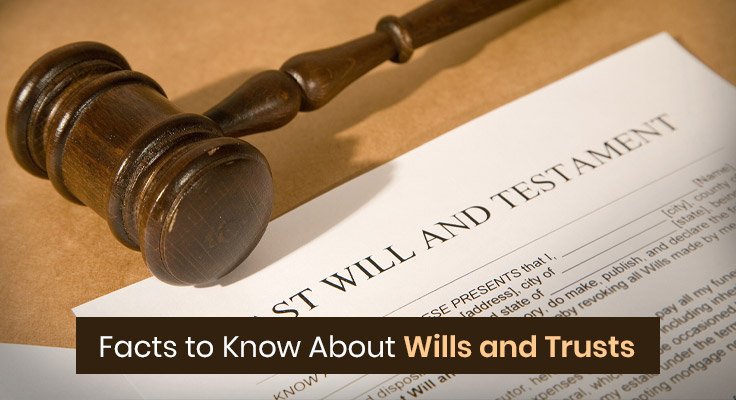As you work diligently to give yourself a good life, you also think about what to leave behind for your loved ones when death comes knocking. You want those you cherish and value to get your inheritance.
Then, you must be proactive about your estate planning to ensure all the desired boxes are ticked before your departure. “When you focus on the bigger picture and the legacy you want to leave, legal issues can be avoided,” says Justin Gillman of Gillman Capone Law.
To properly plan your estate, you must itemize your assets, financial status, and the taxes that need to be paid for the transfer of property title. You must also consider who will take care of your minors, if you have any. Wills and trusts are the essential parts of estate planning that address these issues.
This piece discusses the facts you should understand about trusts and wills.
Understanding Wills and Trusts
To properly understand these essential components of estate planning, it is crucial to know what wills and trusts entail. Beyond understanding the differences, it will help you make an informed decision about how you plan your inheritance.
What a Will Entails
A will is a document that itemizes the allocation of your estate after your demise. It designates a legal professional responsible for your property.
A will is comprehensive and discusses everything about your death. For instance, it captures the shape you want your funeral to take, the guardian of your minor children, and those who will inherit your estate. The document becomes binding on all concerned.
What a Trust Entails
A trust is a legal agreement that focuses on an extreme amount of wealth and does not require validation in a probate court. There are various types of trusts. When you want to create one, you liaise with your attorney to choose the one that most appropriately suits your purpose.
After creating a trust, you appoint a trustee who will watch over your property or assets for others by adhering to your instructions. Primarily, the trustee is responsible for ensuring that the right thing is done; they will monitor the wealth and distribute it to the intended beneficiaries as specified in the document.
However, you can revoke these benefits before your death. You can also withhold some benefits while still alive. The agreement can specify the age at which you want the beneficiaries to have full access to the benefits. When you speak with a probate lawyer, they will tell you all the possibilities in this aspect.
The Differences Between Wills and Trusts
To further understand these concepts, this segment delves into the main difference between wills and trusts:
While both are legal documents, a trust is ideal when you want to distribute certain assets to a specific beneficiary while maintaining some level of control over their distribution. A trust gives you absolute control over the wealth you are giving out—you determine who to give, what to give them, and the time you want them to receive it.
As portrayed, you wield absolute power when creating a trust. You can even decide to revoke the benefits from a beneficiary before or after your death. Everything depends on you and your choice.
Conversely, a will is a document that lists the assets you wish to transfer to your preferred heirs after your passing. You can also determine who receives what and how they should get it. However, your authority ceases over the asset after its transfer.
Final Remarks: Getting an Attorney Involved
While this article has provided insight into what trusts and wills entail, it is essential to note that they are easier to discuss than to draft. Property laws are complicated and taxing. Aiming to create a will or trust on your own can lead to unimaginable confusion.
Therefore, you need an estate planning attorney to walk you through the process. A local attorney will enlighten you on what the concepts entail and which is ideal for your situation. This legal counseling will save you from unnecessary back-and-forth.
You must proactively take the proper steps to secure the future of your heirs or loved ones. No one wants a situation where, after passing away, their wealth or assets become a source of strife, confusion, and legal battles among loved ones. Therefore, draft a will or trust with the assistance of a local estate planning attorney while you are still here.
Also Read : What Is an Estate Plan? Do You Need One?





















